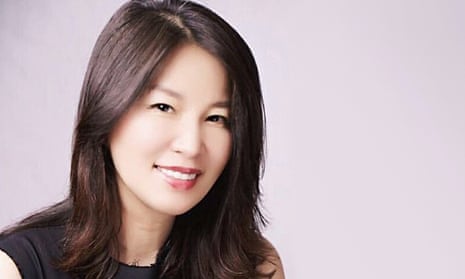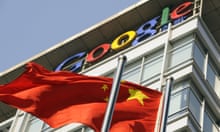China’s Communist party-controlled media has criticised “narrow-minded” and “prejudiced” online activists who are questioning Twitter’s decision to appoint as its first regional chief a former member of the People’s Liberation Army who once had ties to the country’s security services.
Kathy Chen – a former Microsoft manager whose Twitter handle describes her as a “curious explorer” – was named as the social network’s managing director for mainland China, Hong Kong and Taiwan last week.
Chen’s appointment has incensed Chinese dissidents and pro-democracy activists in Hong Kong who use Twitter, a service that has been blocked in mainland China since mid-2009.
Twitter is estimated to have about 18,000 active users in mainland China, despite being rendered inaccessible without a virtual private network (VPN) by the country’s notorious Great Firewall.
Critics of Twitter’s move have highlighted Chen’s background as an engineer for the Chinese military during the late 1980s and 90s.
They also point to her involvement, between 1999 and 2005, with Computer Associates-Jinchen, a joint venture between an American tech company and a Chinese firm in which China’s ministry of public security reportedly held a 20% stake.
The Financial Times cited a 2004 interview with Chen in the Chinese media in which she said the joint venture had made software used to filter “information of political sensitivity and harmful information”.
A reference to the ministry of public security’s role in the joint venture appeared to have been removed from Chen’s LinkedIn profile on Wednesday.
A Twitter spokesperson confirmed the profile had been “updated” but said the change had been made “to clearly explain the JV [joint venture] structure” after “inaccurate media reports” about the involvement of the ministry of public security.
The spokesperson confirmed that the ministry had “indirectly owned” the Chinese firm in the joint venture but downplayed its involvement and said Chen had never worked for the ministry.
Hu Jia, an outspoken dissident who has more than 95,000 followers on Twitter, said activists felt the social network had betrayed them by employing someone with such a résumé.
“[Twitter] is a place where we can reveal the truth and which helps us to communicate and cooperate. But Kathy Chen’s appointment destroys all that. It is painful for us. It means betrayal,” he said.
“It isn’t just betraying us, but it is also betraying itself and betraying its moral responsibility to a free society.”
Chen, whose main task will be boosting Twitter’s advertising business in China, has not responded to the criticism. However, a company spokesperson said it was “thrilled” Chen had joined Twitter and said her “strategic hire shows our increasing commitment to this important region”.
Thank you for your support as we connect Greater China to the world! A video by @kathychen2016 , MD of @TwitterGCN pic.twitter.com/aX9GzZe2sc
— Twitter GCN (@TwitterGCN) April 15, 2016
The spokesperson dismissed online claims about Chen’s ties to Beijing: “Kathy is not and has never been a member of the Chinese Communist party.”
Twitter also defended Chen’s stint in the Chinese military. “In the late 1980s, the Chinese government often directed Chinese university graduates into their first jobs. Because of her computer science degree, Kathy was assigned as a junior engineer at the People’s Liberation Army.
“When the Chinese economy further opened up with reform in the early 1990s, Kathy chose to pursue her passion for a technology career by switching to the private sector in 1994.”
China’s government-controlled media also came to Chen’s defense. In an editorial published on Tuesday, the Global Times tabloid attacked those claiming Chen’s appointment meant “Twitter will be dyed with Communist colour”.
The nationalist newspaper said criticism of Chen’s appointment came from a small group of Twitter users who were “antagonistic against the Chinese mainland’s political systems”.
But the Global Times admitted that if Twitter were to be unblocked in China, “certain adjustments according to Chinese law would be necessary”.
The Twitter spokesperson said: “We are not entering mainland China as Twitter the consumer service is still blocked there.”
A second article published on Wednesday in the Global Times cited academics in mainland China who rejected fears over Chen’s supposed government ties. “It’s typical bias to assume that a Chinese with a government background will hinder freedom [of speech],” Steven Dong, a professor from Beijing’s Communication University of China, was quoted as saying.
“Many international companies have appointed Chinese people to important posts, which has led to their success in the Chinese market.”
Qin An, a cyber-security expert from the China institute for innovation and development strategy, said Chen’s appointment should be “welcomed and encouraged”.
“Western countries should rid themselves of prejudice and accept China’s rise as a major internet power,” Qin was quoted as saying.
Criticism of Chen’s appointment has been further inflamed by her decision to engage with Communist party-controlled media outlets on the social network following her appointment.
@XHNews Thanks and look forward to closer partnership in the future!
— Kathy Chen (@kathychen2016) April 15, 2016
“Thanks and look forward to closer partnership in the future!” she wrote to Xinhua, Beijing’s official news and propaganda agency, after it used its official Twitter account to congratulate her on her move.
In a tweet sent to CCTV, the party-run state broadcaster, Chen alluded to a recent speech by Chinese president Xi Jinping, writing: “Let’s work together to tell great China story to the world!”
Chen did not publicly respond to tweets asking her to elaborate on the nature of the partnership she envisaged between Twitter and the Chinese government mouthpieces.
Joshua Wong, the student leader who shot to fame during Hong Kong’s 2014 umbrella movement demonstrations, on Tuesday became the latest figure to weigh in on the controversy.
Well I guess I am still new to Twitter...what a pity if that's true #Chinaeverywhere https://t.co/tcP29VRgne
— Joshua Wong Chi-fung (@joshuawongcf) April 19, 2016
“What a pity if that’s true,” Wong tweeted alongside a link to a story about Chen’s promises to “work together” with CCTV.
Rebel Pepper, a dissident cartoonist, offered a bleak take on the controversy, picturing the company’s Twitter bird logo climbing into a cage held by an arm marked “China”.
Twitter Users Express Concern over New China Position https://t.co/OWGytOBNAA pic.twitter.com/24DvYhjR79
— China Digital Times (@CDT) April 18, 2016
Additional reporting by Christy Yao









Comments (…)
Sign in or create your Guardian account to join the discussion